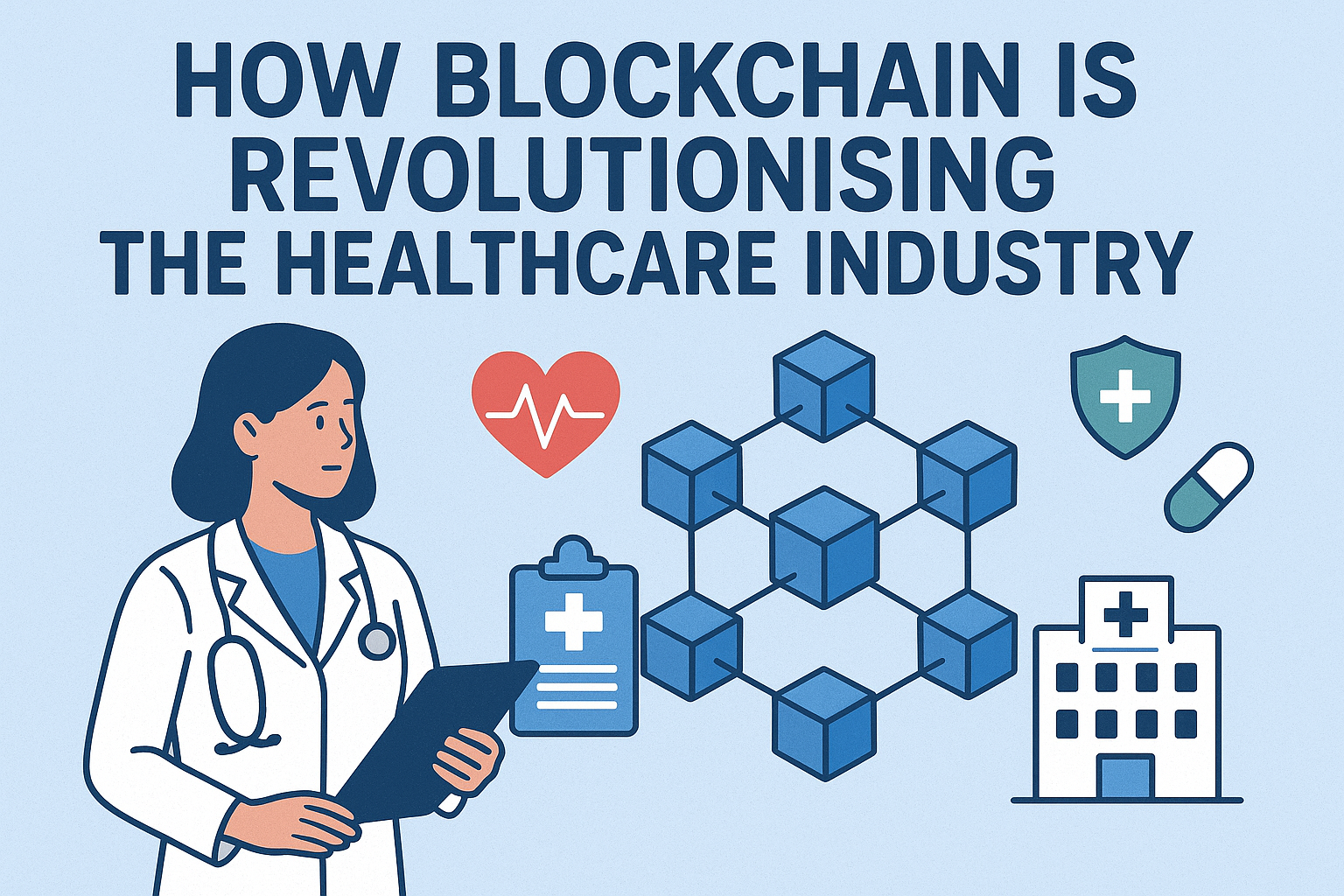
How Blockchain Is Revolutionising the Healthcare Industry
One of the most important aspects of the health care industry is the protection of patient data. However, more than 100 million people were affected by healthcare cyber attacks in the year 2023!
With the rise of technology advancements like blockchain, the healthcare industry is being rapidly transformed.
The decentralization, immutability, and transparency offered by blockchain make it a key requirement for the secure transfer of patient records.
The trust, security offered by this technology promote easy access and safe transfer of patient data by eliminating the risks of hacking.
The question is, how does it happen? What is the role of blockchain in transforming the healthcare industry? Keep reading to know more!
Blockchain in Healthcare- What Is Its Use?
A blockchain is a digital ledger that stores data in a way that makes it resistant to hacking and data breaches. In the health care industry, sensitive information like patient records, telemedicine data, and results of clinical studies requires careful handling.
To ensure authorized access, blockchain technology is used to store immutable blocks of data, which cannot be changed or deleted. For students, understanding the details associated with this concept often demands a lot of time. This is why they choose to go for professional nursing essay writing services.
The Rise of Health Care Issues
The need for a robust data management system still continues to exist in the health care industry. Patient data is often scattered, managed through different sources, and remains inconsistent across multiple formats.
The following issues lead to improper data management, which could result in misdiagnosis and improper treatments.
| Data silos | Patient data is distributed in various health care systems, making it difficult to access during emergencies. |
| Inability to maintain regulatory compliance | The ease of data accessibility often risks non-compliance with HIPAA requirements. |
| Chances of misdiagnosis | Inability to get full access to patient history with poor record keeping often leads to misdiagnosis. |
| Slow processing | Slow processing of patients in health care systems acts as a barrier to addressing patient needs that require urgent attention. |
Many aspiring health care professionals face issues when they try to understand the technical jargon associated with these subjects. In this case, they choose to go for a professional nursing coursework writing service.
Benefits of Blockchain in the Healthcare Industry
With its remarkable characteristics of immutability, transparency, and resistance to tampering, blockchain technology is a powerful source for safeguarding data.
The table below will discuss the main advantages of using blockchain technology in health care.
| Low risk of data breaches | The decentralized and encrypted nature reduces the risk of data fraud. |
| Secure data sharing | Promotes a seamless sharing of information among various health care providers |
| Optimized drug supply chain | Allows for real-time tracking of drugs, leading to the production and delivery of authentic medicines. |
| Data ownership | Blockchain enables patients to control their medical records, allowing them to access and use them at any time for consultation or treatment purposes. |
| Verified clinical trials | Blockchain technology promotes validity in clinical trials by restricting the alteration of trial results. |
| Increased Trust | A transparent and auditable record of all transactions fosters trust and credibility among patients |
| Reduce administrative burdens | Blockchain technology reduces the administrative burden by tracking and automating tasks such as booking appointments. |
| Better communication | Health care professionals can share patient information through a secure pathway |
Applications of Blockchain in Health Care
To eliminate the issues mentioned above, blockchain technology works as a digital ledger. It ensures data integrity through secure storage and easy access for patients and providers.
Let’s take a look at how blockchain is redefining patient data management by providing efficient solutions.
Safe Storage In Electronic Health Records (EHRS)
Blockchain focuses on a decentralized information management system. It ensures a seamless flow of patient data, allowing clinicians and patients to access data at any moment.
The use of a cloud-based blockchain health care management system ensures compliance with HIPAA while storing encrypted information in a tamper-proof digital ledger.
Quality Control In Drug Manufacturing
Blockchain provides detailed information regarding the manufacturing details of vaccines and drugs. The integration of blockchain technologies has transformed the quality standards of drug supply chain management.
This technology restricts counterfeit medications from entering the market through its precise tracking of drugs, from manufacturing to delivery.
Secure Data Exchange
The use of blockchain improves diagnostic accuracy by ensuring all medical stakeholders can access and share health information from one secure source.
This improves patient outcomes by providing access to real-time, verified patient data. For instance, a doctor who isn’t aware of the patient’s history and symptoms could only prescribe limited medication to the patient.
However, blockchain technology allows for instant access to get a comprehensive overview of the patient’s history, leading to improved outcomes.
Verified Clinical Trials
Credibility in the results of clinical trials is a must. The use of blockchain technologies plays a key role in verifying the results of clinical trials.
It avoids the chances of data discrepancies by securely managing data, verifying patient consent, and creating a tamper-proof record of any data changes.
Remote Monitoring
Blockchain opens pathways for real-time patient monitoring. It makes use of IOT systems to monitor patient health and facilitate timely interventions. This allows for easy access to patient care, especially in underserved areas.
Patients with chronic conditions can get personalized treatment plans and a more efficient healthcare delivery.
Financial Record Keeping
Blockchain is not limited to patient data but also assists in the accounting and reporting process in the healthcare industry.
This technology improves operational inefficiencies by documenting hospital finances and streamlining the billing process.
Limitations Associated With Implementing Blockchain in Healthcare
Although blockchain is transforming the health care industry with its meticulous data handling, there are some challenges associated with its implementation. The table below will summarize them.
| Risks | Health care organizations won’t risk the replacement of their IT infrastructure built over decades |
| Strict compliance | Implementing blockchain technology requires strict compliance with privacy laws, but there are no clear regulations for blockchain |
| Technical knowledge | Many healthcare professionals are still not proficient in using blockchain technology in their daily lives |
| Costs | The integration of blockchain technology requires a heavy investment |
Final Word
Blockchain technology is bringing significant changes to the health care industry with its power to enhance data security, improve interoperability, and streamline the health care processes. Its decentralized and immutable nature has offered a secure pathway to handle patient data, track drugs, and streamline clinical trials.



